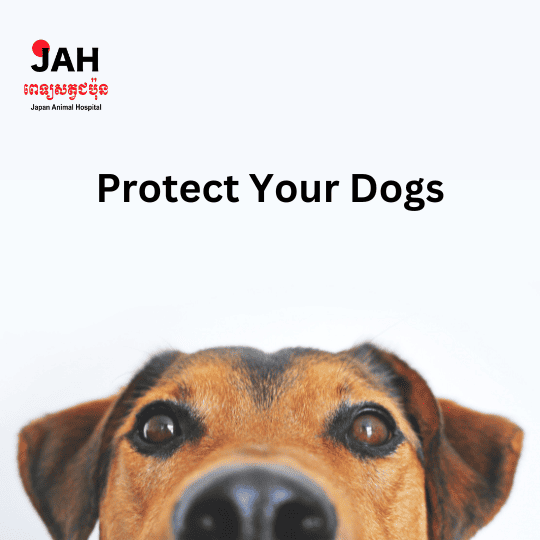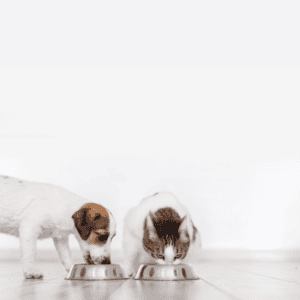Canine Parvovirus: Protect Your Dogs
As responsible pet owners, it’s crucial to understand the ins and outs of this potentially deadly virus and take proactive steps to protect your dogs.
Canine Parvovirus, which is common in Cambodia, can be deadly if left untreated.
What is parvovirus?
Parvoviruses are a large group of viruses that exist in almost every mammal species. Canine parvovirus (CPV), also known as “parvo”, affects only animals of the canine species (dogs, foxes, wolves). On rare occasions CPV can also affect cats. Parvovirus does not affect humans.
Parvovirus is a highly contagious viral infection.
If left untreated, parvovirus can be fatal. Puppies and dogs with weakened immune systems are particularly vulnerable to the virus.
How does parvovirus affect my dog?
Parvovirus enters a dog’s body either by its mouth or nose. Once inside, the virus will invade the body’s rapidly dividing cells, like cells in the intestinal tract and cells of the immune system.
Dogs of any age can get parvovirus, but unvaccinated dogs and puppies younger than four months old are more at risk than other dogs. Puppies that are exposed to stressful conditions like overcrowding, and living in cages, have a weaker immune system, and get parvovirus easier than other dogs.
How is parvovirus transmitted?
The parvovirus is secreted in large amounts by an infected animal through their vomit and their feces. Parvovirus spreads through direct contact with an infected dog or by indirect contact with their feces/vomit.
Since parvovirus is difficult to disinfect on surfaces, and can survive months to years under the right environmental conditions, dogs that come in contact with previously contaminated surfaces can also get infected with the virus.
What are the symptoms of parvovirus?
An infected dog will often show lethargy and lack of appetite as the first signs. As the disease progresses a dog will begin to show abdominal pain, vomiting and diarrhea (often bloody), which can become rapidly severe. Dehydration and secondary infections can quickly set in, making it a life-threatening situation.
So, how is parvovirus treated?
How is parvovirus treated?
If a dog contracts parvovirus, swift and appropriate treatment is crucial. There is no treatment that directly combats the virus, the aim of treatment is to support the body and counteract the symptoms whilst the immune system fights off the virus. Therefore, treatment of parvovirus usually requires hospitalization. Intravenous fluids will need to be administered to maintain hydration and restore electrolyte balance.
Medications to control vomiting and diarrhea, as well as antibiotics to prevent secondary infections and gastric protectants to protect the intestinal mucosa, are also administered. Intensive care may be required, and the duration of hospitalization depends on the severity of the case. Even with early and effective treatment, survival rates are only around 50% on average. The best way to combat parvovirus is prevention rather than treatment.
How to protect my pet from parvovirus?
Vaccination against parvovirus should be started at two months of age, and depending on the environmental settings that a puppy will live in, it will need one or two boosters of the vaccine. Until your pet has completed his/her primary vaccination course, it is advisable to keep them indoors.
Adult dogs should also receive regular vaccinations to maintain immunity. Pet vaccinations are a cornerstone of responsible pet ownership and health protection.
When adopting (or buying) a pet make sure to contact a reputable shelter like Animal Rescue Cambodia who follow proper vaccine protocols.
If your dog has had parvovirus, clean contaminated areas by using a dilution of bleach and water 1:30 to soak the area for at least 10 minutes to ensure that the virus is killed.
Maintaining a clean living environment is equally important. Parvovirus is resilient and can survive in the environment for months or even years. Disinfecting living spaces, removing feces promptly, and minimizing contact with potentially contaminated areas can significantly reduce the risk of infection.
Protect your dogs, Book a consultation
- Phone: 010 303 088
- Telegram: 010 303 088
- Facebook : (1) Facebook
- Email: [email protected]
- Contact us : Contact Us | Japan Animal Hospital Today
Visit us in No.M43, Preah Trasak Paem St. (63), Phnom Penh, Cambodia




